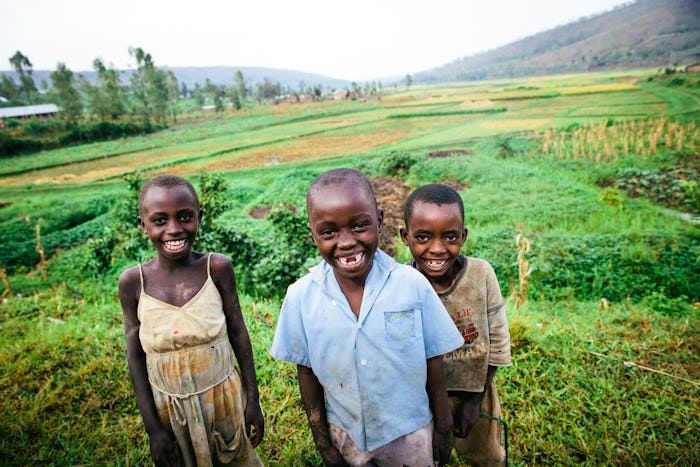You are making a difference in Rwanda!
A glimpse of what your sponsored child’s life is like in Rwanda:
- Most people live in individual family homes surrounded by banana groves and fields. Collections of families living on a single hill has historically been a central social and political unit.
- Marriage is an important social institution in Rwanda, and there is high social pressure to marry and have children. Children are considered a sign of wealth.
- Common Rwandan food consists of beans, bananas, sweet potatoes, potatoes, and sorghum. Dairy products are popular, and those who can afford to eat meat consume beef, goat, and chicken
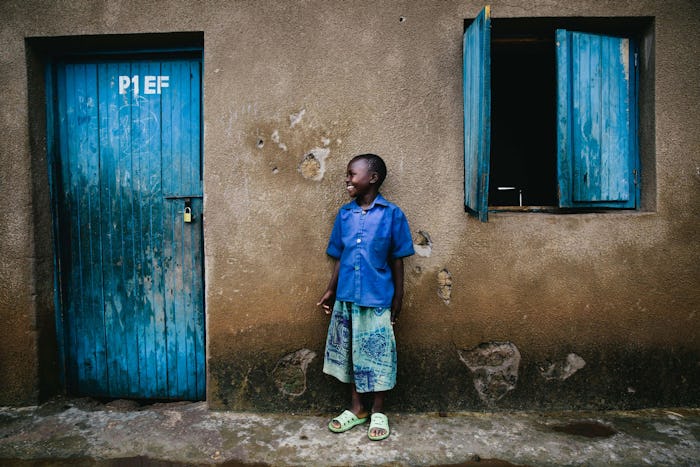
SCHOOL AND EDUCATION
- In sub-Saharan Africa, Rwanda is one of the top-performing countries in education with 98% of children enrolled in primary school.
- The school year runs from January to November. Although school tuition is free and compulsory for all children aged 7 to 13, students must pay for school uniforms, materials, and transportation.
- The size of schools varies, but normally there are 50 to 70 students in each class. Fewer students can afford to continue in the upper classes.
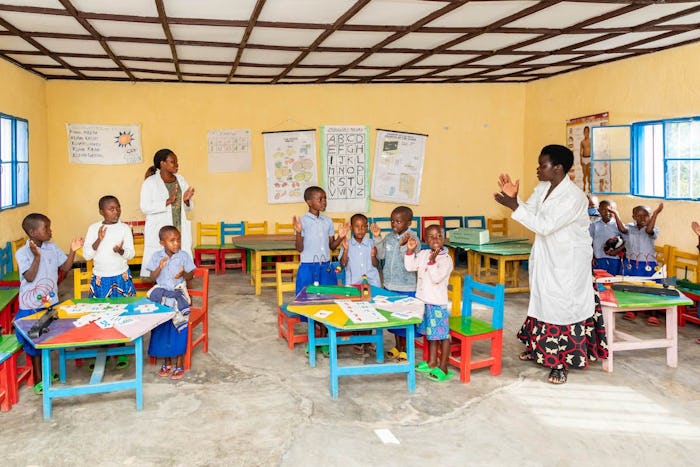
RWANDAN CULTURE
- Rwandans have an elaborate system of salutation that varies depending on the relative social rank and familiarity of the greeters.
- Music and dance have always been an integral part of Rwanda culture and a feature of ceremonies, festivals, and storytelling. Traditional instruments include stringed instruments similar to the lyre or harp and drums, flutes, and horns.
- Football (soccer) is the most popular sport.
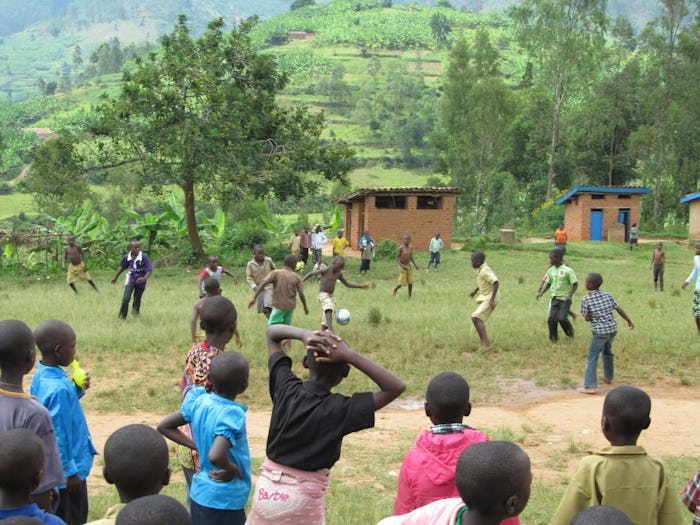
COUNTRY INFO
Rwanda is a sovereign state in central-east Africa and one of the smallest countries on the African mainland, although it is also the most densely populated. Rwanda is in the African Great Lakes region and is highly elevated; its geography is dominated by mountains in the west and savanna to the east, with numerous lakes throughout the country.
- Capital: Kigali
- Population: 11,918,00
- Language: Kinyarwanda, French, and English

FH IN RWANDA
In 1994, FH responded to the serious humanitarian crisis caused by the Rwandan genocide. Afterwards, FH implemented emergency programs to unify children with their families, as well as agriculture interventions, emergency food and item distributions. Since 2001, FH has focused efforts on long-term development work including livelihoods, food, and education.
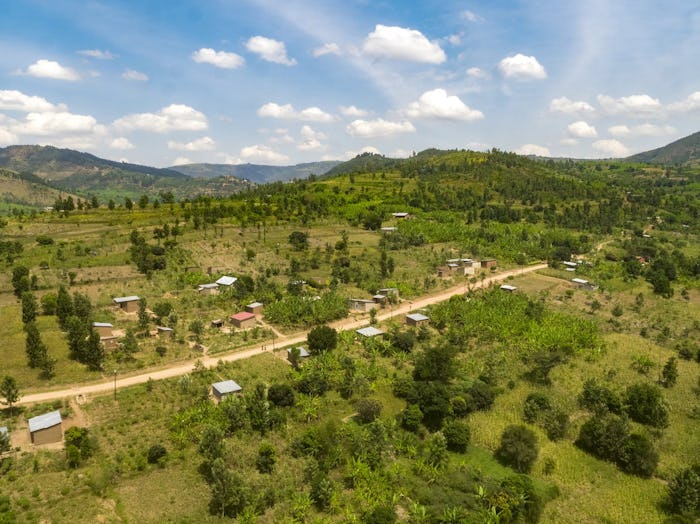
YOUR SPONSORSHIP PROVIDES:
- Training on advanced farming techniques, and health and nutrition.
- The creation of savings groups to help families save more and take out loans when needed.
- School materials and improved classrooms, desks, latrines, and clean water.
